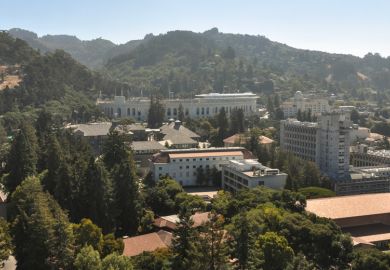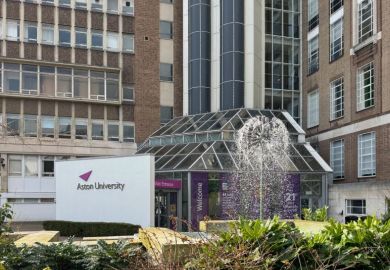The California legislature has moved quickly to protect enrolment at the state’s flagship campus in Berkeley, voting unanimously to block a legal victory by local residents fighting expanding enrolment.
Acting barely a week after a state Supreme Court ruling favouring the residents, lawmakers passed a bill making clear that a state environmental law could not be interpreted as limiting public college enrolment.
The state’s governor, Gavin Newsom, promptly signed the measure into law, sparing the University of California, Berkeley the need to cut a third of its planned acceptance of 9,500 new freshman and transfer students for the coming academic year.
Berkeley’s chancellor, Carol Christ, thanked lawmakers for the reprieve and promised the institution would keep working to build below-market rate housing to reduce the “crisis” of availability in the city.
“We look forward to working in close, constructive collaboration” with state leaders to solve the long-term problem, Professor Christ said in a statement.
The case against Berkeley was brought by a community group, calling itself Save Berkeley’s Neighborhoods, which complained that the campus has grown from 31,000 students to beyond 45,000 since 2005, while adding only 1,600 beds to student housing, creating nuisance and housing shortfalls throughout the city.
They won a court battle, later upheld by the state’s Supreme Court, on the grounds that the university’s behaviour violated a 1970 law requiring environmental assessments of public projects.
Berkeley currently has more than 45,000 undergraduate and postgraduate students, but was banned by the court order from exceeding its pandemic-depressed autumn 2020 enrolment of 42,237. Berkeley first said that the order would mean cutting its expected autumn acceptance of 9,500 freshmen and transfer students down to 6,450, then reassessed its options and promised to accept nearly the full slate of students but require most of them to take their first-semester classes online or to defer their studies until the spring. It also promised to seek the legislative solution it has now won.
The head of the Save Berkeley’s Neighborhoods group, Phil Bokovoy, called the legislature’s override of his court victory counterproductive, and warned that the state could see a repeat of the situation at the University of California, Santa Barbara, where some students without housing are reported to be living in cars, campers and hotel rooms.
“UC-Berkeley does not have the capacity to handle more students,” Mr Bokovoy said.
Mr Bokovoy declined to describe what further action he might take in the matter, saying that he first wanted to see what Berkeley argues before the court, given that the order limiting campus enrolment still stands. But a Berkeley spokesman, Dan Mogulof, suggested that the institution will implement its enrolment preferences without seeing any need to return to court, having convinced lawmakers to make moot the statute on which the ruling against it was based. Mr Bokovoy, in response, said that he “won’t speculate at this point” about his next move.
Register to continue
Why register?
- Registration is free and only takes a moment
- Once registered, you can read 3 articles a month
- Sign up for our newsletter
Subscribe
Or subscribe for unlimited access to:
- Unlimited access to news, views, insights & reviews
- Digital editions
- Digital access to THE’s university and college rankings analysis
Already registered or a current subscriber?









